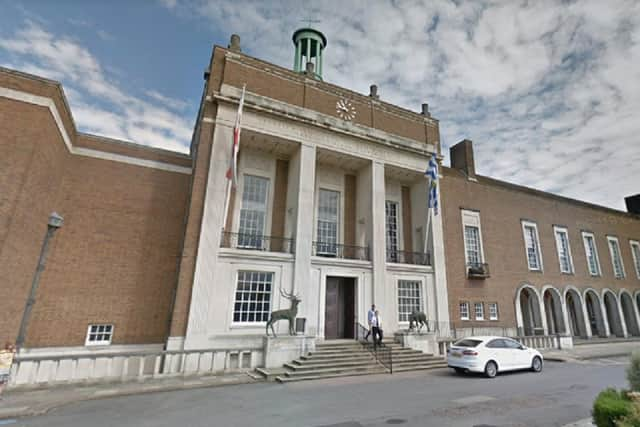‘Unitary authority could be step to greater devolution,’ said Hertfordshire council leader
and live on Freeview channel 276
Cllr Williams says he is in no doubt that a single unitary authority would bring “enormous benefits” to Hertfordshire – by improving services and providing better value for money.
And he says that failure to move towards a unitary model would prevent Hertfordshire from benefiting from any greater devolution of powers from central government.
Advertisement
Advertisement
The government – which is expected to publish a White Paper in September – has already signalled it wants a move towards more unitary authorities and more elected mayors.


And – on a local level – estimates have suggested a move to a single unitary council could save Hertfordshire up to £142million a year.
Leaders of the county’s 10 district and borough council’s have already said they will oppose any move towards a single unitary council.
But Conservative Cllr David Williams says the change to a unitary system would mean less duplication and more consistent services across the county.
Advertisement
Advertisement
And he says he believes the days of two-tier authorities – which combine district and county councils – are numbered.
“I have no doubt in my mind that unitary local government [. . . ]can bring enormous benefits in terms of improving services and better value for money,” Cllr Williams told the Local Democracy Reporting Service.
“I think by the end of this parliament – by 2024 – we are likely to have seen the end of two-tier local government.”
Under Hertfordshire’s existing two-tier system the 10 district and borough councils provide a range of services such as planning, environmental health, bin collection, housing and licensing.
Advertisement
Advertisement
And the county council provides services such as education, libraries, social care, highways – and even the fire service.
Under a unitary system all existing services would be provided by the same council.
A unitary model for a county the size of Hertfordshire could potentially be large enough to include two – or even three – unitary councils.
But Cllr Williams says there are financial and strategic benefits of having just one.
Advertisement
Advertisement
A single council, he says, would allow services such as children’s services and highways (currently provided by the county council) to continue – without being broken up.
And, he says, planning – particularly of housing and key employment sites – could be done more strategically across the county, without regard for district boundaries.
Addressing concerns that a single unitary council could seem remote, Cllr Williams points to unitary authorities that have set up area ‘boards’ or partnerships.
And he says that under a unitary system in Hertfordshire there could be additional responsibilities for existing town or parish councils, which could become responsible for some planning decisions.
Advertisement
Advertisement
But above all, Cllr Williams appears keen to ensure Hertfordshire is not held back from accessing greater powers by clinging on to the existing two-tier structure.
And that may include future consideration of whether they should be an elected mayor for Hertfordshire – as in areas such as Cambridgeshire and Peterborough.
“I am wanting to secure more power to be devolved from central government to people living in Hertfordshire,” said Cllr Williams.
“I am open-minded as to whether an elected leader or an elected mayor is the best way of securing that.
Advertisement
Advertisement
“What I do feel very strongly is somewhere like Hertfordshire should be as ambitious as Cambridgeshire and Peterborough.”
Authorities that already have an elected mayor can have additional powers over areas such as transport, planning and infrastructure delivery.
Cllr Williams points to areas that already have elected mayors that have budgets of at least £30million to support their capabilities.
And, he says, he doesn’t want Hertfordshire to “lose out” compared to areas such as Manchester or Birmingham.